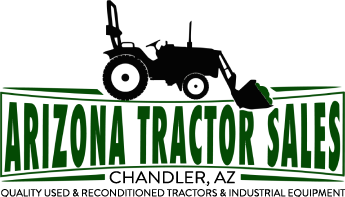Understanding Diesel Exhaust Fluid (DEF) for Tractors
Understanding Diesel Exhaust Fluid (DEF) for Tractors
If you're a tractor owner or operator, you've likely come across the term Diesel Exhaust Fluid (DEF). DEF is an essential component for modern diesel engines, specifically designed to reduce harmful emissions and comply with stringent environmental regulations. Here's a comprehensive guide to help you understand what DEF is, why it's important, and how to properly use it for your tractor.
What is Diesel Exhaust Fluid (DEF)?
DEF is a non-toxic, colorless, and odorless liquid composed of 32.5% urea and 67.5% deionized water. It's used in Selective Catalytic Reduction (SCR) systems to break down harmful nitrogen oxides (NOx) into harmless nitrogen and water vapor. This process significantly reduces the emissions produced by diesel engines, making them more environmentally friendly.
Why is DEF Important?
The primary reason for the introduction of DEF in diesel engines is to meet the Environmental Protection Agency (EPA) emissions standards. These standards aim to reduce the levels of NOx and other pollutants released into the atmosphere. By using DEF, tractor engines can operate more efficiently and with fewer emissions, contributing to cleaner air and a healthier environment.
How Does DEF Work?
DEF is injected into the exhaust stream of diesel engines equipped with SCR systems. When the exhaust gases pass through the SCR catalyst, the DEF vaporizes and decomposes into ammonia and carbon dioxide. The ammonia then reacts with the NOx in the exhaust gases, converting it into nitrogen and water, which are harmless and can be safely released into the atmosphere.
Using DEF in Your Tractor
Storage: DEF should be stored in a cool, dry place, away from direct sunlight. Ideal storage temperatures range from 12°F to 86°F (-11°C to 30°C). Prolonged exposure to temperatures above 86°F can cause the urea in DEF to decompose, reducing its effectiveness.
Handling: Always use dedicated DEF containers and dispensing equipment to avoid contamination. Even small amounts of impurities can disrupt the SCR system and cause engine problems.
Refilling: Keep an eye on your DEF tank gauge and refill it as needed. Most modern tractors will alert you when the DEF level is low. Running out of DEF can cause the engine to enter a limp mode or even shut down to prevent damage.
Quality: Use only DEF that meets the ISO 22241 standard. This ensures that the fluid is of high quality and free from contaminants that could harm your engine.
Common DEF Issues and Solutions
Freezing: DEF can freeze at temperatures below 12°F (-11°C). Modern SCR systems are designed to handle frozen DEF by providing heating elements that thaw the fluid. Allow the system to thaw naturally; do not attempt to thaw it using external heat sources.
Contamination: Contaminated DEF can cause the SCR system to malfunction. Always ensure that DEF is stored and handled properly, and use only clean, dedicated containers and dispensing equipment.
Degradation: Over time, DEF can degrade, especially if stored improperly. Regularly check the expiration date on DEF containers and use fresh fluid to ensure optimal performance.
The Future of DEF and Emission Standards
As environmental regulations continue to evolve, the use of DEF in diesel engines is likely to become even more prevalent. Tractor manufacturers are continually improving SCR technology to enhance efficiency and reduce emissions further. Staying informed about DEF and its proper usage will help you maintain your tractor's performance and comply with environmental standards.
Conclusion
Diesel Exhaust Fluid plays a crucial role in reducing the emissions of modern diesel engines, making them more eco-friendly. By understanding what DEF is, how it works, and how to properly store and handle it, you can ensure that your tractor operates efficiently and within environmental regulations. Embracing DEF and SCR technology not only helps protect the environment but also extends the lifespan and performance of your diesel engine.
For more detailed information and expert advice on DEF and other tractor-related topics, visit Hobby Farms.

